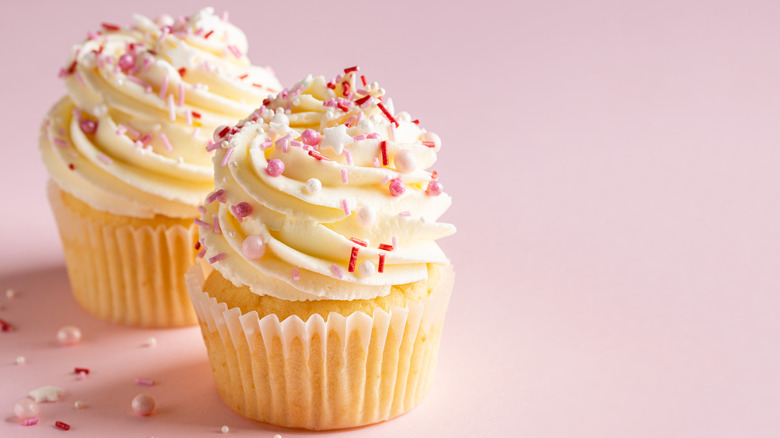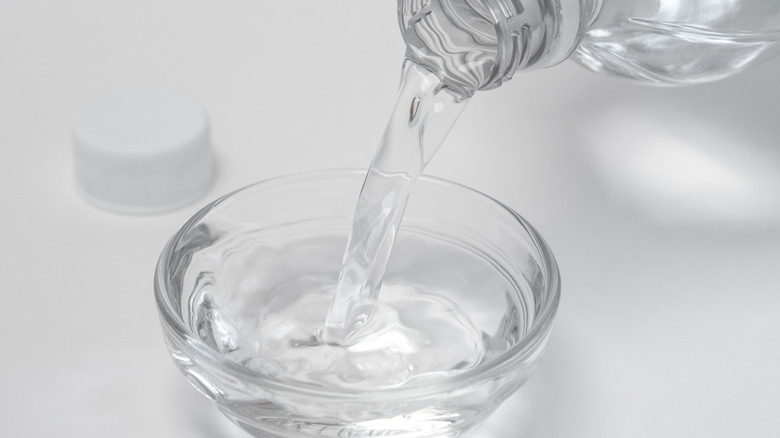The Secret Ingredient That Will Improve Your Frosting
Homemade frosting takes the cake — literally. Or, rather, the cake takes it. Either way, any baker knows that the secret to mouth-watering cupcakes, impressive birthday cakes, and delicious sugar cookies comes down to the topping.
Frosting can take many forms, each of which calls for its own base and combination of ingredients. Cream cheese frosting, for example, which is the star on the likes of red velvet and carrot cakes, uses powdered sugar and no eggs, says MasterClass, whereas Swiss meringue buttercream is all about egg whites.
Given such variety, you can decide between a standard vanilla buttercream or a whipped cream concoction. Yet while it may seem counterintuitive to mess with what's already a good thing, frosting can always be improved. We already know that marshmallow fluff adds both flavor and texture to an otherwise simple buttercream. But there's yet another easy addition that can elevate even the simplest of frostings. This ingredient is one you likely already have on hand, making your next baking expenditure easy as, well, cake.
Just a spoonful of vinegar helps the frosting go down
That bottle of white vinegar in your pantry has another use — and it has nothing to do with household cleaning or savory cooking recipes. Rather, The Washington Post suggests using white vinegar in buttercream recipes for two primary purposes. First, white vinegar helps prevent your cake from cracking, resulting in a smooth finish on your dessert. Taste of Home echoes this function; just one teaspoon of vinegar in boiled frosting keeps the mixture soft.
Beyond this textural effect, vinegar also impacts taste. WaPo goes on to say that less than a teaspoon of white vinegar is enough to counteract your frosting's sweetness. Using even this small amount of vinegar will yield a well-balanced and creamy frosting that offsets the sugary sweetness of your favorite cakes. Vinegar ultimately allows the flavors of your cake to shine — and your frosting to stay smooth.

